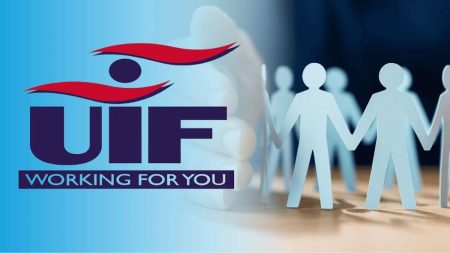The Unemployment Insurance Fund (UIF) is a critical safety net for workers in South Africa who face temporary or permanent job losses. However, not everyone qualifies for UIF benefits. The reasons may vary, including insufficient contributions to the UIF, ineligibility due to specific employment circumstances, or not having worked in formal employment.
While these individuals may feel left behind, several alternative financial support options are available to help them navigate tough times without UIF benefits. In this article, we will explore these alternatives in detail, including government programs, financial relief, and private options.
1. Government Assistance Programs
Even if you do not qualify for UIF benefits, the South African government provides several other forms of financial relief to those in need.
a. Social Relief of Distress (SRD)
One of the most well-known forms of government assistance is the Social Relief of Distress (SRD) grant. This grant provides a financial lifeline to individuals who are struggling to meet basic needs due to temporary unemployment, illness, or other economic hardships.
- Eligibility: Individuals who do not receive any other form of government support, such as UIF or pensions.
- Amount: The SRD grant amount varies but is usually around R350 per month.
- How to Apply: Applications are processed online through the South African Social Security Agency (SASSA) website or mobile app.
b. Child Support Grant
For families with dependent children, the Child Support Grant provides assistance to help cover the costs of raising children in low-income households.
- Eligibility: South African citizens or permanent residents with children under the age of 18.
- Amount: As of recent updates, the grant is around R480 per child per month.
- How to Apply: Applications can be made at SASSA offices, or online in some cases.
c. Old Age Pension and Disability Grant
While these grants are aimed at elderly and disabled individuals, they can still serve as financial support for those in dire circumstances.
- Eligibility: Applicants must be over 60 years old for the pension or have a qualifying disability.
- Amount: The amount is approximately R1,980 for the old age pension, but this may vary depending on the specific situation.
- How to Apply: Visit SASSA offices to submit your application.
2. Financial Assistance from Non-Governmental Organizations (NGOs)
Various NGOs provide financial support and relief services for people who are not eligible for UIF benefits. These NGOs may offer food, temporary shelter, or assistance with job placements. Some well-known organizations that can help include:
- Gift of the Givers: Provides financial, medical, and food assistance to people in need.
- The Salvation Army: Offers various services such as food packages and social support for individuals facing financial challenges.
- Community Chest: Supports marginalized communities with financial grants, job skills training, and support services.
These organizations may not provide direct financial grants, but they can help individuals get back on their feet through services such as skills development, healthcare support, and emergency relief.
3. Microloan and Credit Assistance
For those who are in urgent need of funds and do not qualify for UIF benefits, microloans and credit options can provide short-term financial relief. These loans are typically easier to access than traditional bank loans and may help cover basic needs like rent, groceries, or utilities.
a. Microloans
Microloans are small loans, usually with low-interest rates, provided by various financial institutions or government agencies to individuals in need. They are specifically designed to help people who do not have access to traditional banking services.
- Providers: Some institutions offering microloans include the South African Microfinance Apex Fund (SAMAF), Capitec, and Finfind.
- Eligibility: Loan eligibility criteria vary, but they often focus on low-income earners or individuals with poor credit histories.
- Repayment Terms: These loans usually come with short repayment terms (from a few weeks to a few months), and repayment amounts depend on the loan size.
b. Personal Loans from Banks and Credit Providers
If you’re unable to qualify for UIF but have an established credit history, you might qualify for a personal loan from a bank or credit provider. These loans typically offer larger amounts but come with higher interest rates.
- Eligibility: Banks will assess your credit score and employment status to determine eligibility.
- How to Apply: Loan applications can usually be completed online or in person at a bank branch.
4. Family and Community Support
Family members, friends, or community members can be an essential resource in times of financial distress. While not a formal option, relying on your immediate social circle for temporary financial assistance or loans can offer you a buffer during difficult times.
a. Family Loans or Gifts
If you have family members who can help, consider asking for either a loan or a gift. While asking for assistance can be uncomfortable, family loans may come with no interest or favorable repayment terms.
b. Community Fundraisers and Crowdfunding
In the digital age, crowdfunding has become a viable option for those who are in urgent need of financial support. Platforms like GoFundMe, BackaBuddy, and Thundafund allow individuals to raise money from friends, family, and strangers to meet financial goals.
- How it Works: You create a campaign that explains your financial situation, and others can contribute directly to your fund.
- Fees: These platforms often charge a small fee on the funds raised, so it is essential to read the terms before starting a campaign.
5. Temporary Work and Freelance Opportunities
While not a traditional form of financial assistance, seeking temporary or freelance work is a practical option for those facing job loss or unemployment. Temporary work can provide an immediate income, while freelancing can build into a long-term income stream.
a. Temp Jobs
Various staffing agencies offer temporary or contract-based employment in sectors like retail, administration, and hospitality. These jobs may not be permanent, but they can provide immediate cash flow while you look for a full-time position.
- Examples of Agencies: Kelly Services, Manpower, and Adcorp offer temporary job placements.
- How to Apply: Register with staffing agencies and attend interviews.
b. Freelancing and Gig Work
Freelancing offers flexibility and can be a great way to earn income on your own terms. Platforms like Upwork, Fiverr, and Freelancer allow individuals to offer services such as writing, graphic design, web development, and more.
- Getting Started: Create a profile and start bidding for jobs that match your skill set.
- Earning Potential: The more experienced you are, the higher your earning potential.
6. Budgeting and Financial Planning
Even when financial resources are limited, managing your budget effectively can stretch your resources. Learning to live within your means, cutting back on non-essential expenses, and setting aside emergency savings can help you weather financial storms.
- Steps to Budgeting:
- List all sources of income.
- Track monthly expenses.
- Prioritize essential needs (housing, utilities, food).
- Cut down on discretionary spending.
Check also: Is Your Employer Paying Your PAYE Tax? Here’s How to Check!
While not qualifying for UIF benefits can be frustrating and stressful, there are a variety of alternative financial support options available. From government grants and NGO support to personal loans and temporary work, there are ways to secure the financial relief you need. Additionally, focusing on long-term financial planning through budgeting and saving can help improve your financial situation over time.
By tapping into these resources, you can navigate difficult times with greater ease and find the stability you need to get back on your feet without UIF benefits.










